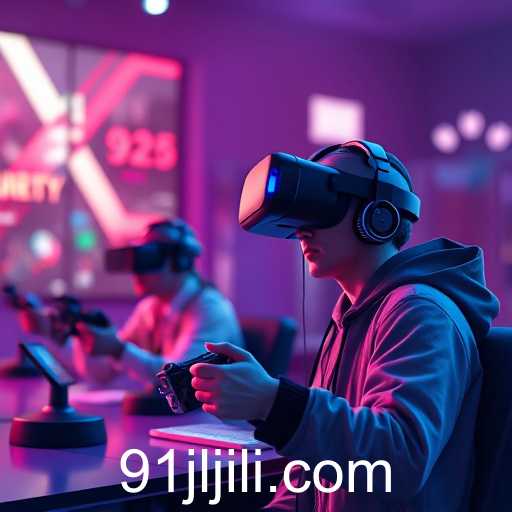In 2025, the gaming landscape marks a significant departure from its early days, with digital advancements playing a central role in how games are created, distributed, and consumed. Platforms like '91jl', known for its comprehensive gaming experiences, are at the forefront of these innovations, reshaping the way players interact with games.
The industry has witnessed a marked shift towards greater immersion and interactivity. With the advancement of virtual reality (VR) and augmented reality (AR) technologies, games have transcended the traditional screen-based formats. Players are now part of the game world rather than just spectators. This shift has been facilitated by rapid improvements in hardware and software, making these experiences more accessible to a wider audience.
'91jl', among others, harnesses these technologies by providing platforms where gamers can engage with diverse and dynamic environments. It offers users not only entertainment but educational and social interactions, boasting a community-driven model that encourages collaboration and competition. As games become more sophisticated, they also serve as tools for learning and skill development. For instance, gamified learning experiences integrating real-world problem-solving have gained traction, attracting educators and learners alike.
Security and data privacy have also become significant concerns in the digital realm. Game developers and platforms like '91jl' are increasingly focusing on adopting robust security measures to protect user data, ensuring players can enjoy their gaming experiences without compromising personal information.
Moreover, the economic implications of this evolution are profound. The gaming sector has become a massive economic force, driving technological development, job creation, and even influencing cultural trends worldwide. The rise of esports has turned professional gaming into a viable career path, with global tournaments drawing millions of viewers and substantial prize pools.
Looking ahead, the gaming industry is poised for further transformation. As artificial intelligence (AI) continues to evolve, its integration into games promises even more personalized and adaptive gaming experiences. This personalization, coupled with continued technological innovation, suggests that the future of gaming will be even more inclusive and engaging.
'91jl' and similar platforms, by embracing these dynamic changes, stand as testaments to the rapid evolution of the gaming industry, offering a glimpse into a future where gaming is not just a leisure activity, but a fundamental part of society's digital fabric.








